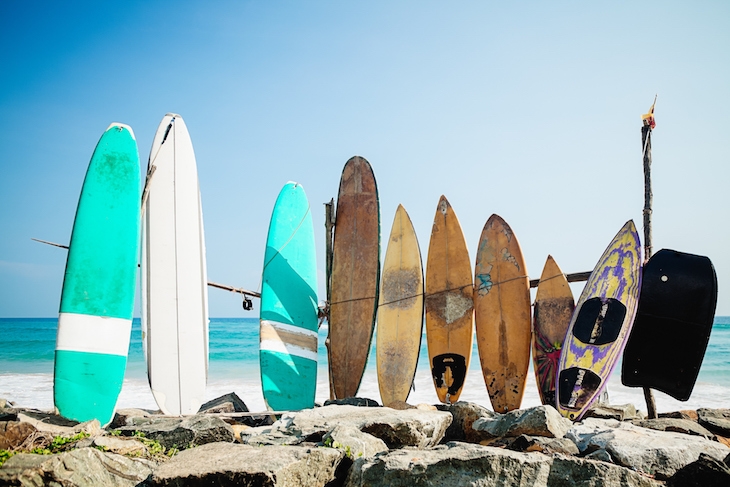Surfing has come of age. Like rock and roll, it was once strictly for young people, edgy and alternative and physically way too demanding for anyone over the age of 27. But those young people grew up and they’re still at it. For millennials it’s hard to maintain a sense of cool when your parents are heaving their boards into the same breaks and when, according to the marketing people, there are upwards of 35 million surfers worldwide, in a sector that’s worth at least $10 billion per year.
Now comes the season of the surfing memoir. The 2016 Pulitzer Prize for Biography was won by the very brilliant Barbarian Days: A Surfing Life by William Finnegan. A staffer at the New Yorker, Finnegan is in his sixties, and charted with candour a career of hunting for stories and waves, often at the same time.
Iain Gately has also reached a certain age; he has had a hip replacement. The Secret Surfer is the account of his hobbling progress back into action, back towards the head-high face of a breaking wave. He had always been a competent surfer, but had never gained access to the green room, the fabled space inside a barrelling wave where — if you time it just right, if you position yourself correctly between the crest and the base — you find yourself enveloped in a translucent tunnel of water, zooming towards the shrinking light. It is one of those places on earth where lives are changed, like the summit of certain mountains, after which nothing else comes close. (William Finnegan recalled standing tall in a tube a couple of hours into an acid trip, which must have added a little something to the experience.)
The trajectory of Gately’s recovery follows its course from crutches to the first exercises on his bedroom floor, to the practice pop-ups, and tentative sessions on the wobble board. He pulls out his old wet suit: the neoprene is dry and cracked. So from his home on the Dorset coast, he takes a journey west to Cornwall, to Newquay — ‘the soul centre of English surfing’ — to select a replacement.
Finding the right board takes longer. He owns a 7ft Bass which proves unserviceable. On eBay he spots ‘the Bonzer’, a bright orange, five-fin, chunky-railed retro-board. Later he progresses to a Mini Simmons, the design of a technical shaper called Bob Simmons who died surfing at 34. Gately is in the water within minutes of buying it: ‘I had to hunker down into a squat and grab the outside rail; and to go, slot the inside rail into the face of the wave like a letter-opener. The water sparkled as it peeled off the board.’ Finally — his other hip beginning to grate — he finds that a knee-board allows him greatest range.
What leavens The Secret Surfer is what makes all such books enjoyable even to non-surfers — the peculiar intensity of involvement. Anyone who knows surfers knows also that that is what they are. They are not carpenters or executives who go surfing. They are obsessives with a day job. Gateley has a job but we’re not told what it is because it’s not relevant. He has a partner and a six-year-old daughter and they both feature in the story, slightly out-of-focus figures in beach pictures where it is the waves that are sharp. The story is his own, the struggle to overcome physical impediment on beaches from Lyme Regis to Bantham and Woolacombe, from Galicia to the Canaries.
Gately takes on too a number of those subjects that committed wave-chasers find swilling around their heads — bathymetry, the nature of courage, the effects of barometric pressure. ‘Is surfing a sport?’ is the question that has made laconic surfers garrulous since the IOC announced that it would form part of Tokyo 2020. Almost all see it as sacrilege. There are no winners and losers in surfing, explains Gately. Professional surfers do compete against each other and sponsors pay them, but it’s really about being alone in the water.
The Secret Surfer is hugely enjoyable —fluent and jokey but also touching. Gately is a gritty customer, straightforward and honest. He avoids much of the machismo that goes with carrying a board down the beach. What he gives us is a spectacle of complete immersion. There are compelling descriptions of sessions in the West Country that go on for pages and pages. I found myself becoming more familiar than I needed to be with the A361 in Devon, the caravans on the A35 or the ticket collector at Bantham car park. Yet such was the sense of anticipation, such was the destination, that it really didn’t matter.





Comments